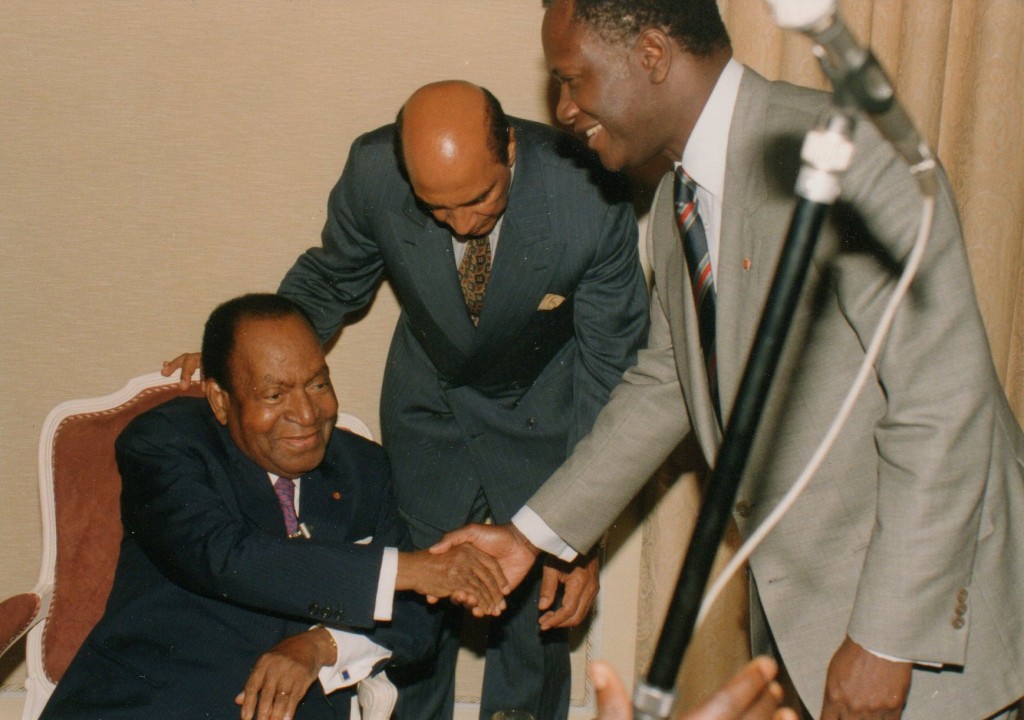President Alassane Ouattara’s express bio

BY JIBRIL TURE
Alassane Ouattara was born in 1942 in Dimbokro, northern Cote d’Ivoire. He earned his High School Diploma at age 20 in Ouagadougou, the capital of then-Upper Volta, now Burkina Faso. He later received a Ph. D. in economics a the University of Pennsylvania and joined the International Monetary Fund, IMF, in Washington, D.C. in 1968 as an economist. Five years later, he joined the Central Bank of West African States, based then in Paris. After working his way to the position of vice governor, he returned to the IMF in 1984, climbing to the position of Director for Africa concurrently with that of special advisor to the managing director. In October 1988, President Houphouet-Boigny appointed him governor of the Central Bank of West African States, at a time when the sub-region was hard hit by a stubborn recession which was compounded, in the case of Cote d’Ivoire, by the sharp drop in the price of cocoa, the country’s main export.
In April 1990, the president appointed him to an unusual position that gave him the power to look over the country’s economy and finances. The position involved the development of a structural adjustment program required by international financial institutions willing to help.
To say that Ouattara, a fine product of the IMF and the Central Bank, was up to the challenge would be an understatement. So, only seven months later, the nation’s founding father appointed him Cote d’Ivoire’s first, unprecedented prime minister.
The abrupt arrival of this “outside” technocrat so highly trusted by the aged, tired founding father rubbed many local power wielders the wrong way, just as the positive results of his economic measures, which took away most of the perks usually enjoyed by the elite, earned him a lot of enemies.
No wonder Bedie, who was speaker of the parliament while Ouattara ran the country, was very nervous about the big banker turned prime minister who had some appetite for the presidency. The same goes with one political agitator and leader of the burgeoning opposition to President Houphouet-Boigny. That agitator who was arrested in February 1992 during Ouattara’s tenure as prime minister along with union workers “for causing trouble”: Laurent Gbagbo.


